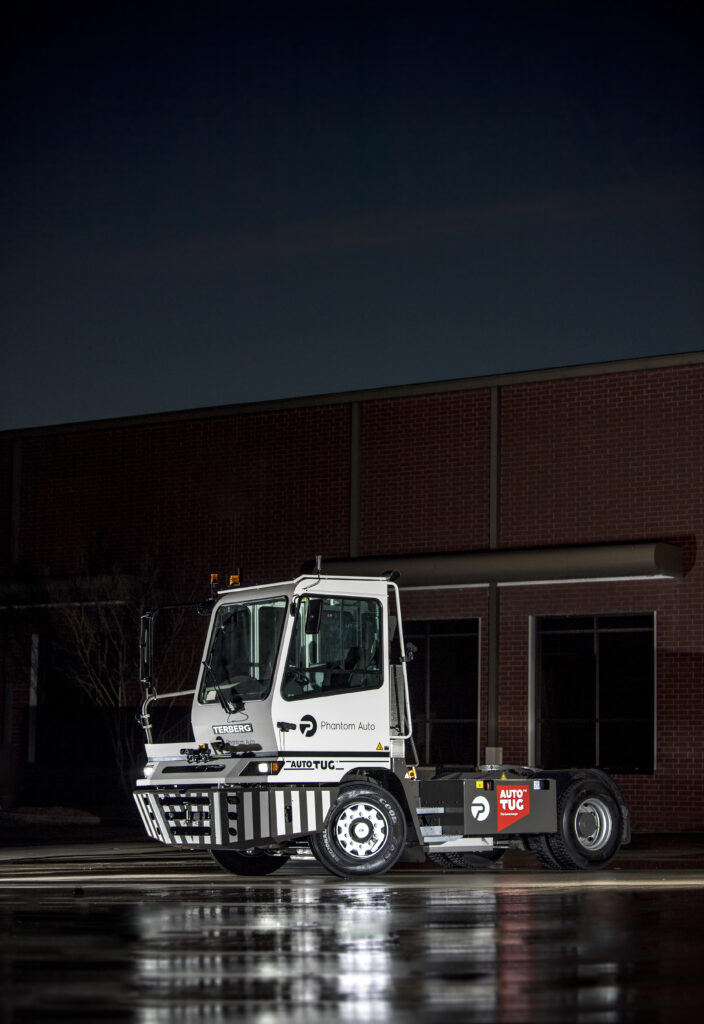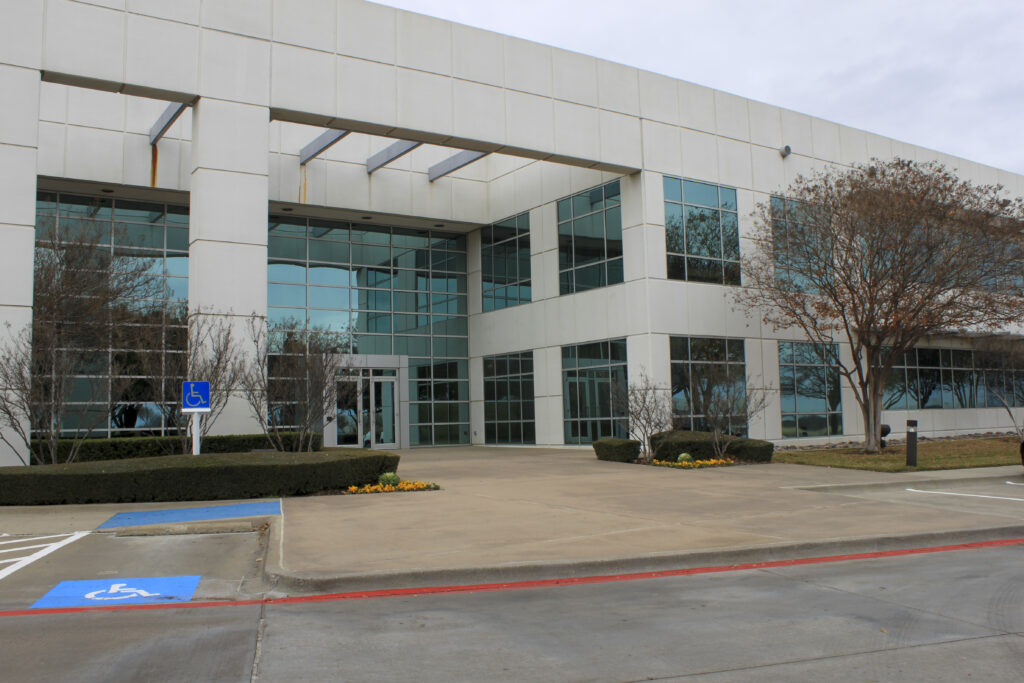A frantic amount of activity takes place at freight terminals and depots. Heavy machinery and enormous equipment pass each other as billions of dollars’ worth of goods and commodities are exchanged day and night. At such workplaces, the actual physical presence of a human worker has been crucial and imperative.
The latest in logistics technology now has provided the ability to operate industrial equipment on-site with no humans within sight. The once abstract idea of working from home for industrial workers – a.k.a, “teleoperation” – is slowly turning into reality, of which Fort Worth could be at the forefront.
When ITS ConGlobal (ITSC), one of the world’s largest operator of intermodal and depot terminals, expanded to North Texas in January with a new 5,000-square foot office within AllianceTexas’ Mobility Innovation Zone, it was not to run business as usual.
“We are honored to welcome ITS ConGlobal, one of the nation’s top technology companies in the logistics industry, to the AllianceTexas Mobility Innovation Zone,” said Russell Laughlin, executive vice president of Hillwood, developer of AllianceTexas. “We’re looking forward to seeing how the company will leverage all the MIZ has to offer as it operates in complex industrial terminal environments.”
ITS ConGlobal ITSC offers customers tailored intermodal solutions and is deeply interconnected within North America’s intermodal and container supply chain infrastructure.
The Mobility Innovation Zone was launched as a first-of-its-kind “do tank,” leading the nation in smart infrastructure deployment to create a digital and physical commercialization environment for partner companies.
The Illinois-based company has operations in 127 locations across North America and lifts about 8.5 million shipments and about 2 million vehicles, each year. This year, ITSC expects to deploy teleoperation capabilities that enable various industrial jobs to become office jobs.
One of the first operations to transpire at the Fort Worth facility would involve drivers sitting in the Fort Worth office being able to control a yard truck in a port in Oakland, California – more than 1,600 miles away.
The technology comes from Phantom Auto, a Silicon Valley-based startup that is pioneering teleoperation techniques and software.
Phantom Auto cofounder Elliot Katz told the Business Press the technology functions as a “human-in-the-loop” system, meaning a human workforce is still required to get the job done. It’s largely different from A.I.-powered autonomous technologies.
“The thing our customers’ workforce is excited about is this idea that someone, let’s say, who’s been operating a yard truck for the last 20 years, they’ve been doing so outside, maybe in Wisconsin in the middle of the winter,” Katz explained. “Flexing that exact same driving muscle, they would [now] do so from a nice warm, cozy remote operation center, where they can drink a cup of coffee and be with their colleagues.”
Complete autonomy in terminals or port warehouse settings is still thought to be underdeveloped and might only be possible in the distant future.
Phantom Auto’s human-in-the-loop technology integrates well in such an environment because the operations need complex maneuverings where sudden movements are always possible requiring attentive human senses. That was part of the reason why ITSC decided to partner with Phantom Auto to utilize its expertise, said ITSC CEO Brant Ring.
ITSC locked into a strategic partnership with Phantom Auto in December and also made an investment during the startup’s last funding round. Mid-January of this year ITSC received delivery at its Oakland depot of the first teleoperated yard truck from Phantom Auto.
ITSC owns and operates about 30 container yards across North America.
The company recently opened a 5,000-square-foot office at AllianceTexas’ Mobility Innovation Zone, the cutting-edge development area in Fort Worth to build and scale mobility and smart infrastructure technologies. ITSC further plans to open a new depot – complimenting the office – at AllianceTexas and pilot more of Phantom Auto’s teleoperation capabilities.
“Over time, I would expect our presence to grow here and leverage the talent, the skilled workforce, the specialized infrastructure,” Ring told Business Press in an interview. “In all, the support for growth and innovation, we expect to leverage that.”
Apart from the yard truck, ITSC expects to soon roll out teleoperation capabilities in various other equipment, like, forklifts, cranes, chassis, as well as workforce shuttle vehicles.
Further down the road, those capabilities will expand and incorporate even commercial movements. Trailers and containers would be transported in and out of ITSC’s depot to neighboring warehouses, distribution centers and rail terminals via remote-controlled consoles inside the office, or possibly at employees’ homes in the future.
Ring said a “significant” portion of its core business will be managed from the Fort Worth office. It would include field operations and execution.
ITSC is highly involved in the rail intermodal terminal service sector and works with almost all the major North American railroads, including Norfolk Southern, Union Pacific and Fort Worth-headquartered BNSF.
Network execution of ITSC’s rail sector will be carried out of Fort Worth, as many rail operation managers will work out of the AllianceTexas office. CEO Ring, who previously worked for BNSF as an executive, is based in Fort Worth.
“We don’t pursue technology for technology’s sake. So we don’t do things. Just because they are ‘cool,’ ” Ring said. “We pursue technology that has practical applications that will make us safer, more effective, and more efficient.”
Safety did become a major issue for all kinds of jobs at the onset of and throughout the COVID-19 pandemic. While many jobs easily switched over to remote spaces, some remained unable to do so due to their physical nature.
Various companies in different industries have looked to Phantom Auto to employ the teleoperation technology in the last year.
Food delivery company Postmates, owned by Uber, has Phantom Auto-enabled robots delivering food to hungry customers in California neighborhoods. Also partnered is technology company NVIDIA, which together with Phantom Auto is working on efficient, real-time remote operation of unmanned vehicles.
“Formerly, no one that had to do any sort of physical task could work in a remote location,” Katz said. “So it’s a very new, novel thing. But the feedback that we’ve gotten thus far is very positive.”









